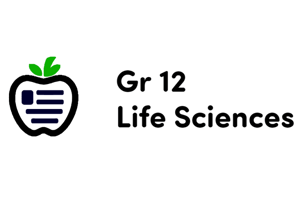Podcast
Questions and Answers
What are the three main functions of the human nervous system?
What are the three main functions of the human nervous system?
Receive, process and coordinate a response to information.
What are the two main divisions of the human nervous system?
What are the two main divisions of the human nervous system?
- Central Nervous System and Peripheral Nervous System (correct)
- Brain and Spinal Cord
- Autonomic Nervous System and Somatic Nervous System
- Voluntary Nervous System and Involuntary Nervous System
What is the role of the central nervous system?
What is the role of the central nervous system?
Processes and coordinates responses to sensory stimuli from the environment.
The brain carries sensory information from the body to the ______.
The brain carries sensory information from the body to the ______.
What role does serotonin play in the human body?
What role does serotonin play in the human body?
What happens when the brain lacks serotonin?
What happens when the brain lacks serotonin?
What is the role of the autonomic nervous system?
What is the role of the autonomic nervous system?
Match the following components of the peripheral nervous system with their roles:
Match the following components of the peripheral nervous system with their roles:
What is dopamine's role in the brain?
What is dopamine's role in the brain?
Flashcards are hidden until you start studying
Study Notes
Human Nervous System
- The human nervous system is responsible for receiving, processing and coordinating responses to information
- It comprises the central nervous system and the peripheral nervous system
Central Nervous System
- The central nervous system (CNS) is made up of the brain and spinal cord
Brain
- The brain receives sensory information from the body and sends motor information to the body
Spinal Cord
- The spinal cord acts as a pathway between the brain and the rest of the body
- The spinal cord receives sensory information from the body and sends motor information to the body
- The spinal cord also receives and processes sensory stimuli and coordinates responses, including voluntary movements, emotions and conscious thoughts
Peripheral Nervous System
- The peripheral nervous system (PNS) connects the CNS to the rest of the body
- The peripheral nervous system carries messages between the central nervous system and muscles, organs and glands
Somatic Nervous System
- The somatic nervous system (SNS) is part of the PNS that controls voluntary movements
- The SNS carries sensory information to the CNS and motor information from the CNS to skeletal muscles
Autonomic Nervous System
- The autonomic nervous system (ANS) is part of the PNS that controls involuntary functions
- The ANS regulates the body’s organs, visceral muscles and glands
- The ANS is composed of the sympathetic and parasympathetic nervous systems
Sympathetic Nervous System
- The sympathetic nervous system (SNS) is part of the ANS that activates the body's fight-or-flight response
- The SNS activates visceral muscles, organs, and glands, preparing the body to respond to a threat or stressor
- Examples of SNS activation include: increased heart rate, dilated pupils, increased blood flow
Parasympathetic Nervous System
- The parasympathetic nervous system (PNS) is part of the ANS that returns the body to a state of rest and relaxation
- The PNS maintains functioning of visceral muscles, organs, and glands after a sympathetic activation
Neuromodulators
- Neuromodulators are neurotransmitters that affect the responsiveness of many neurons
- Neuromodulators can increase or decrease the effectiveness of neural transmission
- Dopamine and serotonin are two examples of neuromodulators that have a wide range of effects
Serotonin
- Serotonin acts as both an inhibitory neurotransmitter and a neuromodulator
- Serotonin influences mood, perception, reward, anger, aggression, appetite, memory, sexuality, and attention
- Serotonin is produced in the brainstem and its pathway extends to almost all areas of the cerebrum, including the cerebral cortex
- Balanced serotonin levels can lead to calm, focused, happy and stable moods
- Low serotonin levels can lead to reduced sleep pressure, increased restlessness, and increased impulsive behaviors
Dopamine
- Dopamine is a modulating neurotransmitter that reinforces neural activity in regions of the brain associated with reward
- The brain's reward pathway is activated by rewarding or reinforcing stimuli
- The reward pathway is an important determinant of our responses to natural rewards
Studying That Suits You
Use AI to generate personalized quizzes and flashcards to suit your learning preferences.




